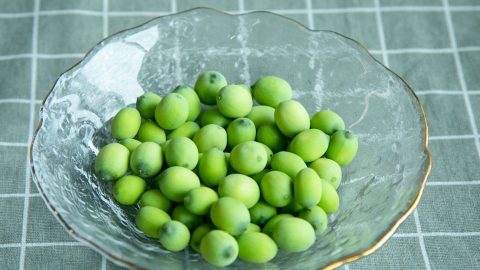Can lotus seeds regulate qi and blood deficiency?
Generally speaking, lotus seeds can help regulate deficiencies in qi and blood, but they should be consumed in moderation. A detailed analysis is as follows:

Lotus seeds contain protein, various vitamins, and minerals such as iron and potassium. Protein is an essential component of the body and provides the raw materials necessary for the production of qi and blood. Iron participates in the synthesis of hemoglobin, which is crucial for oxygen transport; adequate iron intake helps improve symptoms such as fatigue and pale complexion that may result from qi and blood deficiency. B vitamins promote metabolism and assist the body in utilizing nutrients more effectively, thus supporting the generation of qi and blood. From the perspective of traditional Chinese medicine (TCM), lotus seeds are neutral in nature and have a sweet and astringent taste. They function to strengthen the spleen, benefit the kidneys, nourish the heart, and calm the mind. The spleen is considered the source of qi and blood production; lotus seeds can fortify the spleen and enhance the digestive functions of the spleen and stomach, enabling the body to better absorb nutrients from food and laying the foundation for generating qi and blood. The kidneys are regarded as the foundation of innate constitution; lotus seeds nourish the kidneys, strengthening the body's fundamental base and indirectly aiding in the regulation of qi and blood. For mild symptoms caused by qi and blood deficiency, such as mental fatigue and shortness of breath, lotus seeds may offer certain benefits.
However, the effect of lotus seeds in regulating qi and blood deficiency is relatively mild and is only suitable for cases with mild symptoms. They cannot replace professional regulation or treatment for qi and blood deficiency. It is important to consume them in moderation, as excessive consumption may cause gastrointestinal discomfort such as bloating. Individuals with weak digestion should especially control their intake.





